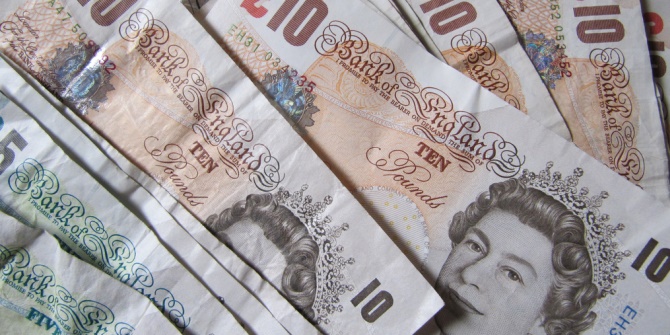Paul Whitely discusses why changes to current rates of inflation are unlikely to happen soon and identifies which factors are likely to prove decisive in the longer term.
Inflation appears to have taken a hold in Britain and the early optimism that it would be a temporary phenomenon now looks misplaced. The Monetary Policy Committee at the Bank of England, which fixes interest rates, has reacted by increasing bank rate (the key interest rate) to 5 per cent, hinting that it will go further if necessary. This raises the key question: when can we expect inflation to return to the target rate of 2 per cent per annum from its current rate of 8.7 percent?
Challenging assumptions
Monetary policy involves altering interest rates which is the price of credit. The idea is that making credit cheaper stimulates economic activity by getting consumers to borrow and spend, and producers to borrow and invest. Following the financial crash of 2008, the costs of borrowing were lowered to near zero to stave off a recession.
It also involves making credit more expensive with the aim of slowing economic activity in the face of inflation, something which is happening at the moment. Clearly if millions of people pay more for their mortgages, they will have less to spend on other things and the resulting drop in consumer spending should reduce inflation.
However, does it actually work like that in practice? The chart shows the relationship between bank rate and inflation using monthly observations over the period from January 1974 to January 2020. The correlation between bank rate and Inflation is strong and positive (r=0.64). In other words, as bank rate increases so does inflation, contrary to what the Bank wants to achieve.
The relationship between interest rates and inflation in Britain from 1974 to 2020

To be fair, inflation does not react instantly to a change in bank rate. In the words of economist Milton Friedman, changes in the money supply brought about by changes in interest rates affects the economy “in six to nine months”.
But if we look at the correlation between Bank rate six months earlier and the rate of inflation it is positive and almost the same as the current correlation (r=0.62). Equally, the nine-month prior correlation and inflation is slightly weaker but still very positive (r=0.59). This shows that bank rate does not directly affect inflation even with a sizeable lag.
The missing link
This of course leaves us with a puzzle. If rising interest rates don’t bring down inflation what does? The missing link here is people’s expectations about the state of the economy and their own financial circumstances. This is something which the great economist John Maynard Keynes recognised in his seminal book The General Theory of Employment, Interest and Money. In chapter 15 he wrote: “the rate of interest is a highly psychological phenomenon”.
If we look at the relationship between inflation and consumer confidence, something which has been measured since the 1970s, it is negative (r= -0.39). When inflation is high, not surprisingly, consumer confidence is low. There is also a negative relationship between bank rate and consumer confidence which is a rather weaker correlation (r=-0.17). The upshot is that increases in bank rate make people and businesses less confident about spending and investing and this is reinforced by high inflation. Eventually this brings inflation down. The problem with this is that low consumer confidence delays the subsequent economic recovery, and it takes a long time to work through.
Looking ahead
The Bank of England regularly commissions surveys of inflationary expectations, the latest one being published in February this year. The results are pretty gloomy with some 8 per cent of respondents saying that inflation would come down in the next five years, compared with 19 per cent who thought it would rise by 5 per cent or more.
When asked about their expectations of increases in interest rates over the next 12 months, 59 per cent of respondents thought that rates would rise, compared with 11 per cent who thought they would fall. Expectations for both inflation and interest rates are currently very pessimistic.
Given that it is all about expectations, this suggests that inflation will come down rather slowly, since the effect of bank rate on the economy is not direct, but indirect via consumer confidence. An indication of the extent of the delay is the fact that the Monetary Policy Committee has increased bank rate 13 times since December 2021, precisely because the response in terms of reducing inflation has been very weak. Don’t expect price rises in the shops to come down soon.
All articles posted on this blog give the views of the author(s), and not the position of LSE British Politics and Policy, nor of the London School of Economics and Political Science.
Image credit: Shutterstock







